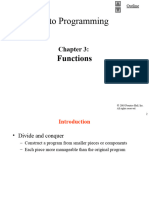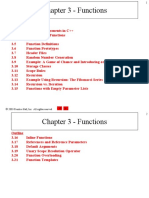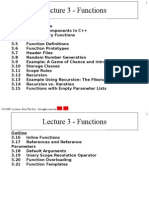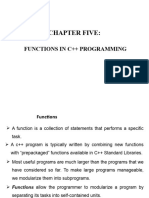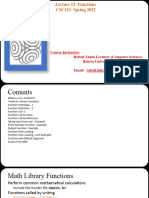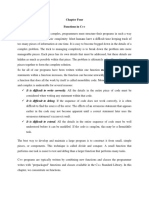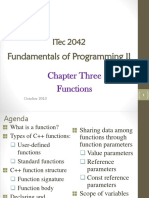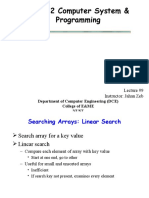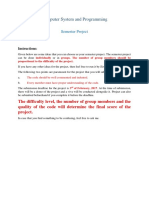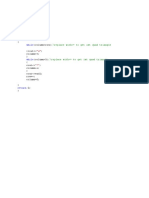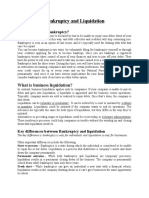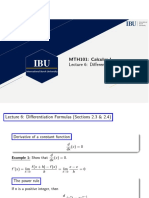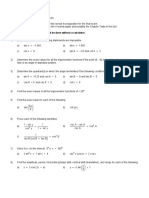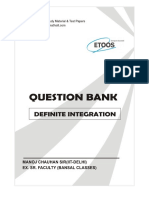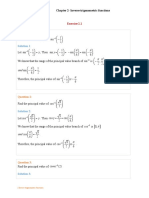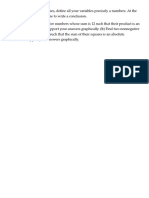0% found this document useful (0 votes)
41 views39 pagesEC-102 Computer System & Programming: Instructor: Jahan Zeb
The document discusses functions in C++. It explains that functions modularize programs into smaller, more manageable pieces. Functions contain parameters that provide information to the function and return values. Functions are defined with a return type, name, and parameters. Functions are called by name with arguments provided in parentheses. The document provides examples of math library functions and demonstrates defining, prototyping, and calling user-defined functions.
Uploaded by
Faysal Qadeer KhanCopyright
© © All Rights Reserved
We take content rights seriously. If you suspect this is your content, claim it here.
Available Formats
Download as PPT, PDF, TXT or read online on Scribd
0% found this document useful (0 votes)
41 views39 pagesEC-102 Computer System & Programming: Instructor: Jahan Zeb
The document discusses functions in C++. It explains that functions modularize programs into smaller, more manageable pieces. Functions contain parameters that provide information to the function and return values. Functions are defined with a return type, name, and parameters. Functions are called by name with arguments provided in parentheses. The document provides examples of math library functions and demonstrates defining, prototyping, and calling user-defined functions.
Uploaded by
Faysal Qadeer KhanCopyright
© © All Rights Reserved
We take content rights seriously. If you suspect this is your content, claim it here.
Available Formats
Download as PPT, PDF, TXT or read online on Scribd
/ 39




